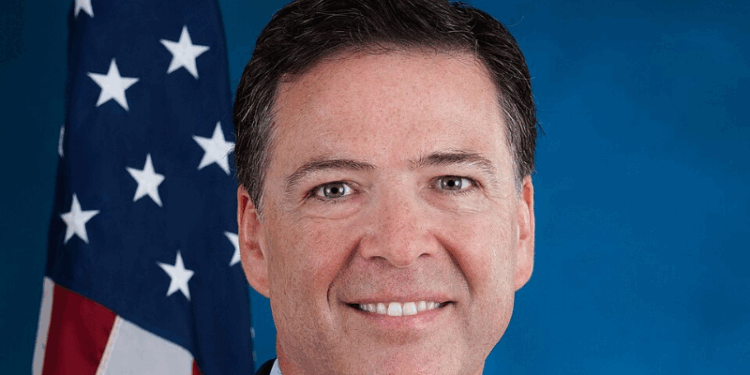Former FBI Director James Comey has come under federal scrutiny after posting and then deleting an image that some claim implied a threat to former President Donald Trump. In the image, posted on Instagram, seashells arranged to display the numbers “86 47” were captioned “cool shell formation.” The post, which triggered a swift political backlash, was uploaded on Thursday, May 16th.
The number 86 is slang that traditionally means to “get rid of” something, originating from restaurant jargon dating back to the early 20th century. Combined with “47,” referencing Trump as the 47th president, some interpreted the post as a coded call for violence. Trump responded by accusing Comey of inciting assassination, stating in a televised interview that “a child knows what that meant.” Homeland Security officials have confirmed that the Secret Service interviewed Comey at its office in Washington, D.C.
Comey later stated the photo was intended as a political commentary and that he was unaware of the violent interpretations tied to the numbers. “I oppose violence of any kind,” he wrote, adding that he deleted the post after recognizing the controversy. He emphasized that the shells were already arranged when he encountered them on a beach walk. The post has since prompted an active investigation led by the Secret Service.
The slang term “86” has appeared in numerous cultural contexts and is defined by Merriam-Webster as meaning “to reject,” “to get rid of,” or “to refuse service to.” Linguists caution that while “86” has occasionally been linked to violent meanings in fiction, such usage is rare. Columbia University scholar Jesse Sheidlower notes that slang terms evolve and are often interpreted differently depending on context.
This is not the first clash between Trump and Comey. Trump fired Comey in 2017, and the two have maintained a contentious public dynamic since. According to historical documentation from the National Archives, the interpretation of speech rights and their legal limits continues to influence investigations involving public figures. Trump supporters have called for legal action, though no charges have been filed as of this report.
Experts warn that symbolism in political communication is increasingly prone to misinterpretation. As noted by researchers at the Berkeley Center for Right-Wing Studies, polarized environments magnify how coded language is perceived. The incident underscores ongoing tensions in American political discourse—and the risks of ambiguity in high-profile messaging.






